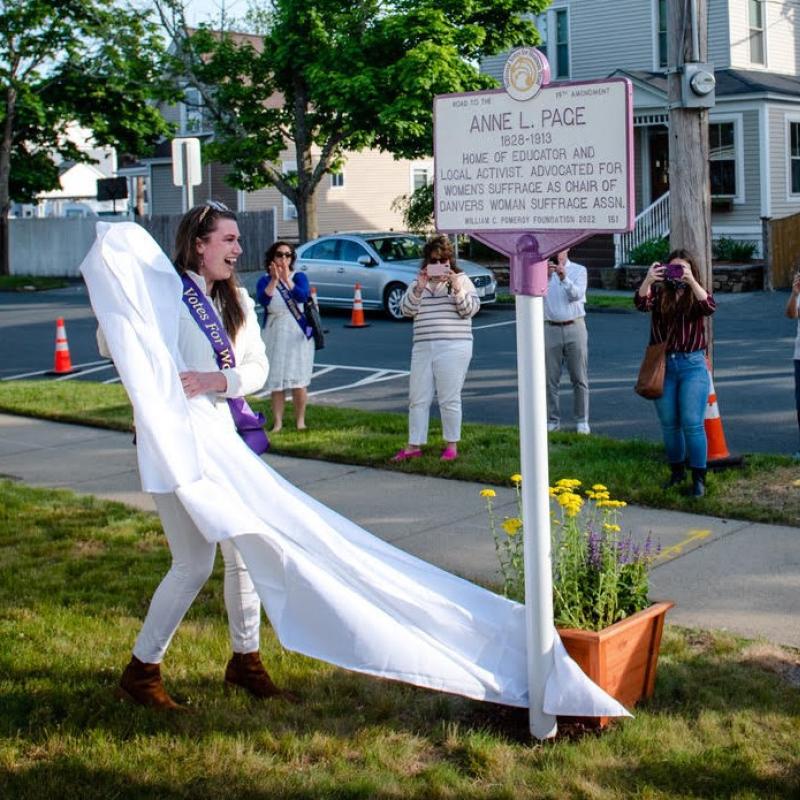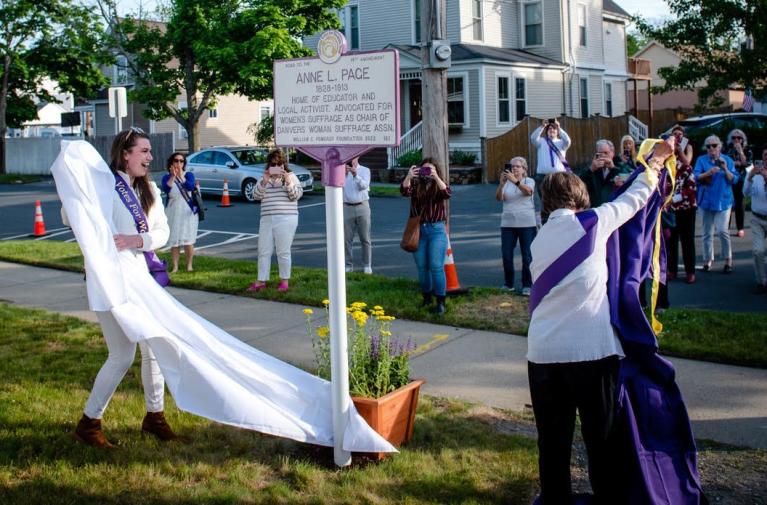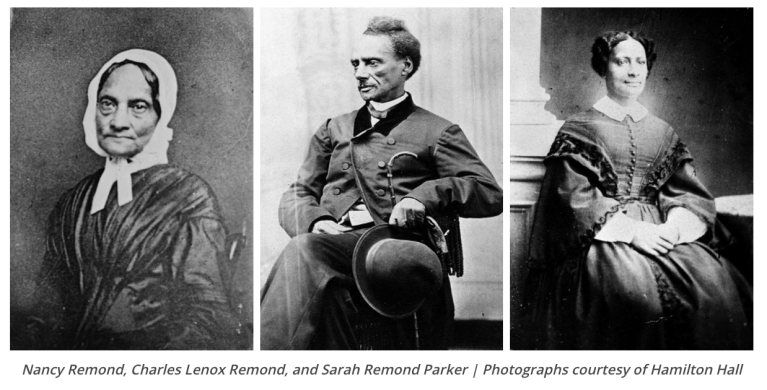Editor's note: the following story originally appeared in Northshore Magazine, written by Sarah Shemkus.
Anne L. Page ran a pioneering group pushing for women’s suffrage from her family home in Danvers. In Salem, generations of the Remond family fought for the abolition of slavery and for the rights of Black people and women. This year, both Page and the Remonds are being honored with historical markers commemorating their contributions to the suffrage movement as part of a national movement to bring attention to sites that tell important stories about the history of the fight for women’s right to vote.
The Danvers marker in honor of Page was unveiled in a ceremony on May 26. The marker commemorating the Remonds will be unveiled at Salem’s Hamilton Hall on June 23.
The markers are part of the National Votes for Women Trail, an initiative sponsored by the National Collaborative for Women’s History Sites in collaboration with local groups promoting awareness of the history of women’s suffrage.
“I do not think people understand or appreciate the extent to which people went to fight for the vote,” said Fredie Kay, founder of Suffrage100MA, a nonprofit organized to commemorate the 100th anniversary of the 19th amendment, which gave women the right to vote. “Certainly today, while access to voting is frankly being threatened throughout the country, it’s more important than ever for us to honor these people and to try to heighten the awareness about what it took to get the vote in many cases.”
The marker recognizing Page’s work was unveiled in May at the downtown Danvers home where she lived for her entire life. Page was one of the founding members of the Danvers Women’s Association, a local suffrage group, as well as a leading educator. She ran one of the country’s first kindergartens out of her home and also launched a school for training kindergarten teachers, ideas that were progressive for their time.
The Remonds, of Salem, were a free Black family of influential social activists. John and Nancy Remond were prominent local entrepreneurs who advocated against slavery and school segregation; it has been suggested they regularly opened their home to runaway slaves. Their son Charles Lenox Remond was a prominent abolitionist who staunchly supported the rights of women to be heard and participate in the anti-slavery cause. Their daughter Sarah Remond Parker was arrested for refusing to sit in the gallery at an opera performance in Boston and travelled widely speaking against slavery.
It is important to highlight activists like Remonds, Kay says, to highlight the intersections between the fight for women’s suffrage and the struggle against slavery and racism. When the 19th amendment was ratified in 1920, it did not extend voting rights to women of color and other minority groups, she notes.
“Those laws needed to be changed, which they were,” Kay says. “We want to shine a light.”
Another three markers are set to be unveiled in Massachusetts this summer, including ones in Cambridge, Northampton, and Worcester.


